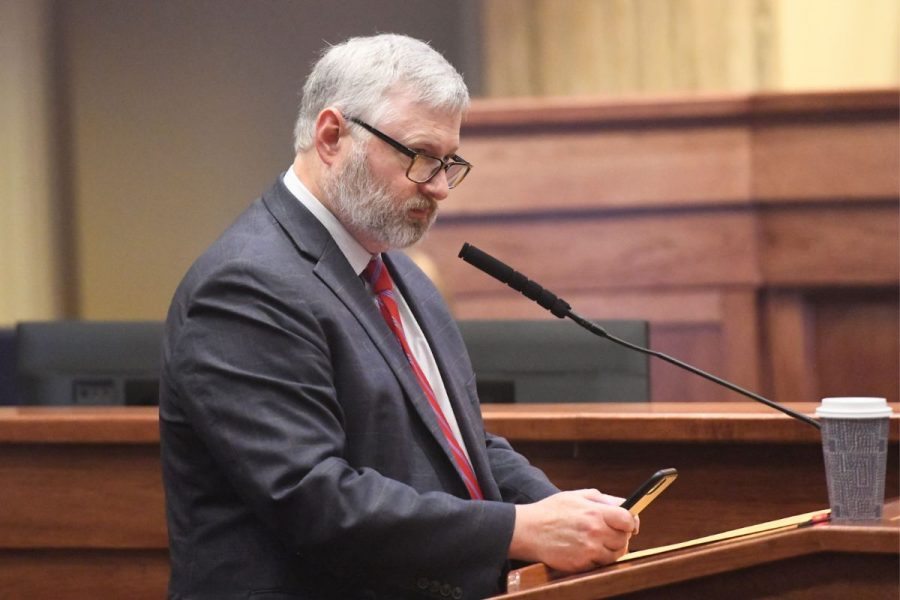Senate Approves Controversial Anti-DEI Bill: The recent approval of the controversial anti-DEI bill by the Alabama Senate has ignited a fierce debate among lawmakers and the public alike. This legislation, aiming to restrict diversity, equity, and inclusion initiatives in public entities, has drawn sharp criticism from advocates who argue that it infringes on fundamental rights.
The bill’s passage has not only divided the Senate along party lines but has also raised broader questions about the future of DEI efforts in the state. As tensions escalate, concerns over the potential impact of this bill on communities and organizations continue to mount, prompting a closer examination of its implications.
Alabama Senate Passes Bill Targeting DEI Initiatives in Public Funding
In a decisive move, the Alabama Senate has passed Bill SB 129, which specifically targets diversity, equity, and inclusion (DEI) initiatives by prohibiting their use of public funding. The legislation, approved in a 26-7 party line vote, is sponsored by Sen. Will Barfoot, R-Pike Road.
SB 129 not only bans public funding for DEI initiatives but also introduces potential consequences, such as termination, for teachers or state employees engaging in what the bill labels as ‘divisive concepts.’ This bill has sparked heated debates and raised concerns about the implications it may have on educational programs and workplace environments in Alabama.
Supporters argue that the legislation is necessary to prevent the promotion of ideologies that they believe could sow division. On the other hand, critics view the bill as a threat to essential efforts aimed at fostering diversity and inclusion within the state. The passing of this bill reflects the ongoing national discussion surrounding DEI initiatives and the varying perspectives on how they should be approached within public institutions.
Democratic Opposition and Filibuster
Democratic senators in the Alabama Senate staged a prolonged filibuster session to challenge the implications of Bill SB 129 and voice apprehensions regarding its potential ramifications. The filibuster was marked by intense debates where Democratic senators expressed concerns about the bill’s language and its impact on discussions around race and diversity. Some argued that SB 129 could stifle conversations on important social issues by restricting individuals from acknowledging or addressing systemic problems related to race or other divisive concepts.
The opposition highlighted the need for legislation that promotes inclusivity and diversity rather than potentially silencing important dialogues. Democratic senators raised questions about the bill’s compatibility with constitutional rights and its potential to limit educational initiatives aimed at addressing historical inequalities. The filibuster session not only underscored the deep divide within the Senate regarding the bill but also brought to light broader ideological differences on how best to approach diversity, equity, and inclusion efforts in the state.

ALSO READ: Alabama Second Execution Controversial Nitrogen Gas Method Resurfaces
Amendments and Changes
Following the party-line vote, significant amendments have been introduced to the controversial anti-DEI bill in the Alabama Senate. These changes aim to address various concerns and modify the bill’s scope. The amendments include:
- Protection of Diversity: Provisions have been added to ensure that the bill does not negatively impact diversity on boards within the state.
- Safeguarding Women’s Sports: Amendments have been made to protect women’s sports in state schools, likely in response to concerns about the bill’s potential effects on gender equality in athletics.
- Removal of Controversial Phrases: Specific phrases, such as ‘slavery and racism are aligned with the founding principles of the United States,’ have been removed from the bill, reflecting efforts to eliminate language that could be deemed inflammatory or inaccurate.
- Further Clarifications: Additional clarifications and adjustments have been introduced to enhance the bill’s clarity and mitigate unintended consequences.
These amendments represent a concerted effort to address criticisms and refine the legislation to better align with the diverse perspectives within the Alabama Senate.
Reactions and Concerns
Amidst the recent amendments introduced to the controversial anti-DEI bill in the Alabama Senate, concerns and reactions have emerged regarding its potential impact on the state’s reputation and recruitment efforts for flagship universities. Senate Minority Leader Bobby Singleton, D-Greensboro, expressed apprehensions about how the bill could affect the state’s image, especially in recruiting efforts for prestigious universities. He highlighted the potential difficulties in attracting top talent, drawing parallels to the loss of Space Command due to previous legislative actions.
Critics of the bill argue that it is out of touch with Alabama’s current needs and driven more by national political agendas than local priorities. The opposition suggests that the bill’s focus on countering concepts perceived as not widely present in Alabama may hinder the state’s ability to embrace diversity and inclusivity effectively. As the debate intensifies, stakeholders continue to voice their concerns about the bill’s potential ramifications on the state’s higher education landscape and overall reputation.
News in Brief
Alabama Senate approves controversial anti-DEI bill, sparking intense debate. Bill SB 129, passed in a 26-7 party line vote, restricts diversity, equity, and inclusion (DEI) initiatives in public entities. Sponsored by Sen. Will Barfoot, R-Pike Road, the legislation prohibits public funding for DEI efforts, introducing potential consequences for those engaging in labeled ‘divisive concepts.’ Democratic senators stage a filibuster, expressing concerns about stifling important discussions on race and systemic issues. Significant amendments follow, addressing diversity protection, safeguarding women’s sports, removing controversial phrases, and providing further clarifications. Concerns emerge about the bill’s impact on Alabama’s reputation, recruitment efforts for flagship universities, and its alignment with the state’s current needs.

